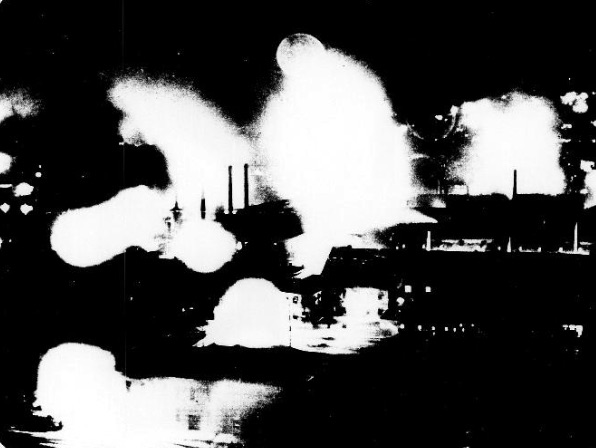
While this 1912 article mainly focuses on women working in the steel mills in the early 1900s, it does show that both the women and the men worked in horrible, unsafe, and unhealthy conditions. Their hours were long, the work was back breaking, and the heat and poisonous gases were deadly.

Women, Improperly Clad, Worked Like Dogs in Steel Mills of Massachusetts
Boston, Feb. 15. — Some of the conditions that exist in the steel foundries of Massachusetts were told to the legislative committee which is considering a bill to prohibit women working in such places, today.
They are such conditions as caused Louis D. Brandeis to cry to congress:
“You must not allow such conditions to go on. You dare not. It would mean the end of America, the end of democracy.”
There are seven hundred women working in the steel foundries of Massachusets. They range from early girlhood to late womanhood in age. They work side by side with men in temperatures above 100 degrees, stifling with smoke and poisonous gases.
The Moulders’ union is trying to have the bill, putting an end to these conditions, passed. Here is what John B. O’Leary, international vice president of the moulders, told the committee of what he had seen in the mills of the industry which Judge Gary says “treats its employees as well as any other industry at any time in the world’s history.”
“I have seen women, scantily and improperly clad, hauling heavy wagons by chains, past rows of men working at the ovens.
“The heat was awful. It was almost impossible to breathe because of the poisonous gases that filled the room.
“Because of this, the women had their arms bare to the shoulders, and in order to get every bit of refreshing air to their bodies, their scanty garments were thrown back at the throat. Their persons were exposed to the gaze of the men workers, especially when they stooped to lift the chains, or to empty or fill the wagons.
“I have seen women compelled to lift and handle cores and moulds so heavy they would tax the strength of the average man.”
John E. Augur, who represents various organizations which are seeking the passage of the bill, and who has made a personal investigation, confirmed all that O’Leary has said.
Then the Rev. O.H. Gifford talked. He appeared for the owners of the foundries. He said that he, too, had made a careful investigation of conditions.
Gifford branded as absolutely untrue all that the other witnesses had said about women being overworked and improperly clad in the foundries.
“As to these working women being improperly clad,” he finished, “I must say that a glimpse into the ball rooms of the social elite would show women more improperly clad than could be found in any foundry in Massachusetts.”
It did not seem to have occurred to the Rev. Gifford that society women expose their persons of their own free will. It did not seem to have occurred to him that no one cares particularly how society women choose to dress. They can go naked, for all most people carom so long as they keep off the streets.
And it did not seem to have occurred to Gifford that there is a great difference between what society women CHOOSE to do, and what plain, good, honest working women ARE FORCED to do.
The legislative committee, after hearing OLeary and Augur, said today that the investigation would be most thorough.
Source: (1912, February 15). Women, Improperly Clad, Worked Like Dogs in Steel Mills of Massachusetts. The Day Book.

